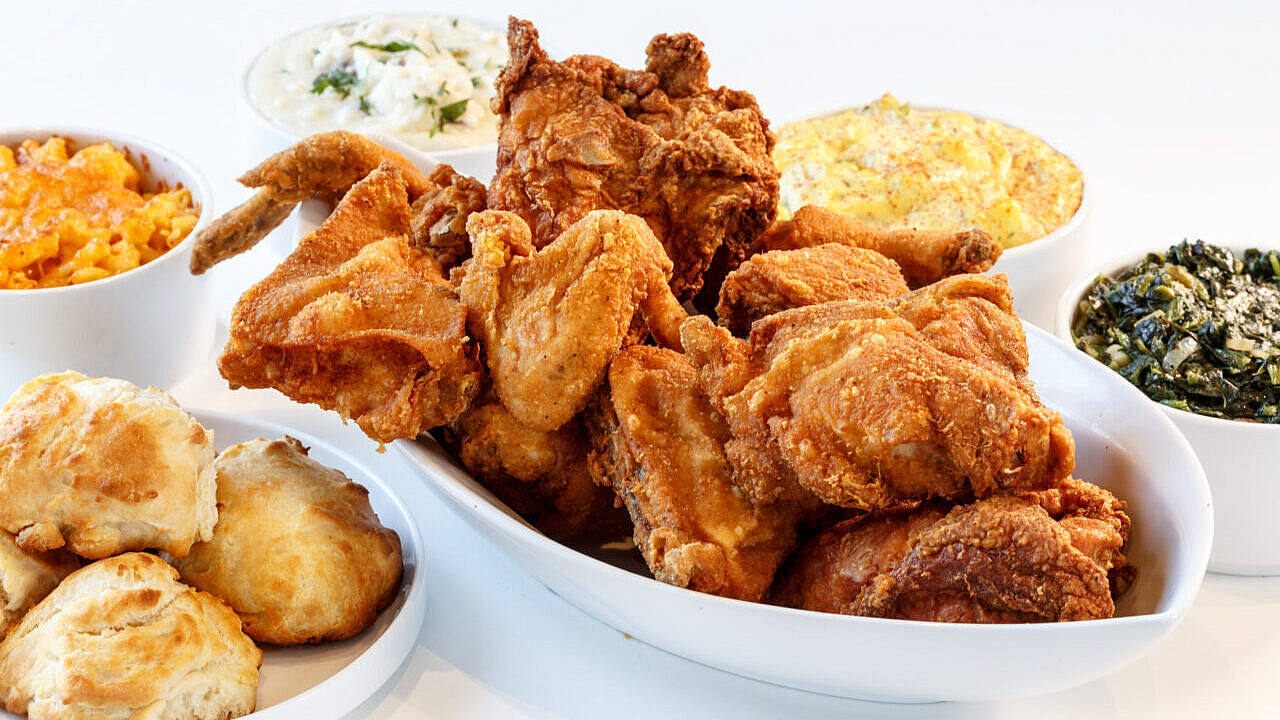Food has always connected us and told the story of who we were, who we are and who we will be. Multiple books and creative projects speak to this; perhaps the most recent example many of us loved was Netflix’s High on the Hog, which told the story of Black cuisine as American history. Watching Stephen Satterfield tell our collective story with such innovation and care made even more sense of why I fry fish every Friday to remind me of time spent with my grandfather, or why receiving a thumbs-up on my cornbread dressing from Grandma was the highest praise. It’s why cooking collard greens in the pot once owned by my great-grandmother Louise—a woman I never met—makes me feel closest to her.

Food doesn’t just tell our history as a people; it tells our history as a family. Attached to our family recipes are some of the greatest moments of our lives. Your Pop Pop’s fried chicken and fried apples ushered in the assurance that whatever it was, everything would be okay. The macaroni and cheese that only your auntie can make—and the way folks hilariously try to sneak second, third and fourth pieces before everyone has gotten a chance to eat. That cousin who’s trying their best to get the potato salad recipe down that everybody says “almost got it”—even though we all know it won’t ever be like Big Mama’s. It’s the way a simple forkful of the right banana pudding can have you recalling a story of days long gone and longed for.
Our food reminds us of who we are—and sometimes, when we’ve lost our way, all we need is a plate.
We know people love us when they cook for us. In the immediacy of death, so many of us know that to be true. But we don’t just cook for each other when things have gone wrong. Black folk will stock a deep freezer in a heartbeat so the last thing a new parent has to think about is what they will eat when feeding their baby. An impromptu summer cookout can bring out the baked beans everybody loves from the in-law everybody side-eyes—as we pray the ribs got off the grill before our favorite uncle’s red Solo cup got too far down into the cooler.
And we do this all as the ancestors stand, watch and smile. Proud of the ways we’ve made without them and the traditions we refused to let go with them. And I believe they beam and blush as we find ways to lean even deeper into our love for them, too. At special dinners, the first plate many of us make is for the ancestors and we hope they are pleased; not just with the food but with our lives. We pray they see the meals as simply an outward expression of the appreciation we have for them and how they’ve rooted us. We are here because they fed us, and they feed us still. And, when the time comes, we will join them in doing the same for all the generations to come.
There’s been a lot of discussion regarding the healthiness of soul food. More than that, some Black folk have begun to turn their noses up at many of our favorite meals, suggesting we should evolve beyond a diet that originated during enslavement. During a Black History Month that’s focused on Black health and wellness, we definitely need to be more intentional about improving our overall quality of life. And while that may mean you can’t have an extra slice of one of Black folk’s favorite desserts, it doesn’t mean we need to abandon the food completely.
Soul food is our link to the past as we work to ensure our future thrives. We’re not just feeding them breakfast, lunch and dinner. We’re giving them legacy. We’re equipping them with the knowledge that, when it may seem you have nothing, you will always have family—in this life and the next—and that is always more than enough.
I hope we all eat well this Black History Month. And, where we can do so safely, I hope we can share meals together. In these times, we don’t just need the food that brought us over but the fellowship that brought us through, too. But wherever we are this February and beyond—whether we eat alone or in the community that sustains us, they will be there. Providing cooking lessons through intuition and swelling with pride as they savor each bite with us, they will be there.

Candice Marie Benbow is theGrio’s daily lifestyle, education and health writer. She’s also the author of Red Lip Theology: For Church Girls Who’ve Considered Tithing to the Beauty Supply Store When Sunday Morning Isn’t Enough. Find her on Twitter and Instagram @candicebenbow.
TheGrio is now on your TV via Apple TV, Amazon Fire, Roku, and AndroidTV. Also, please download theGrio mobile apps today!

